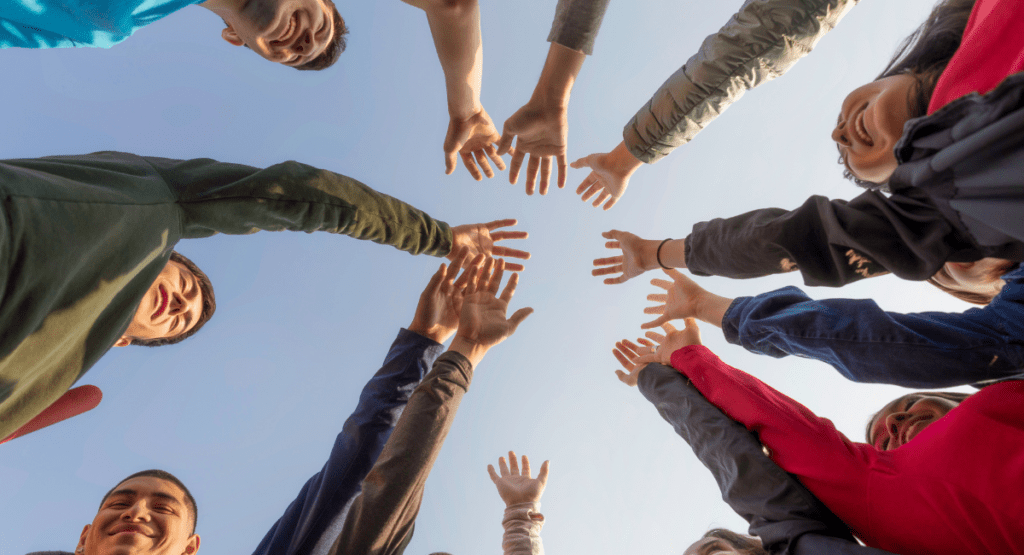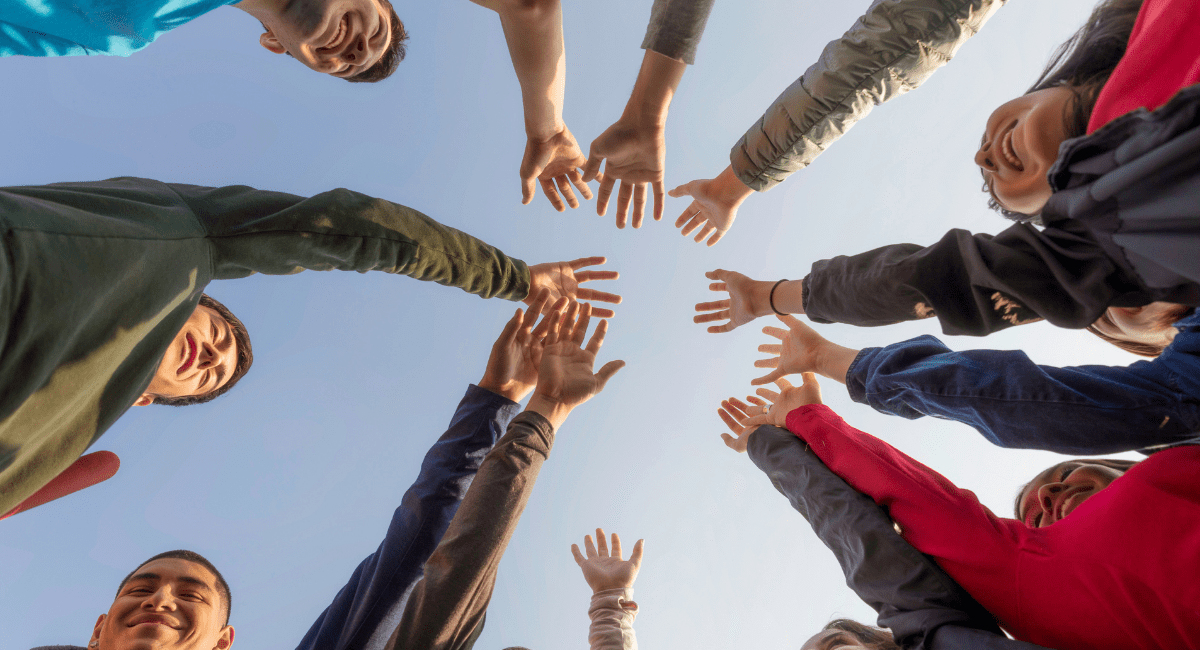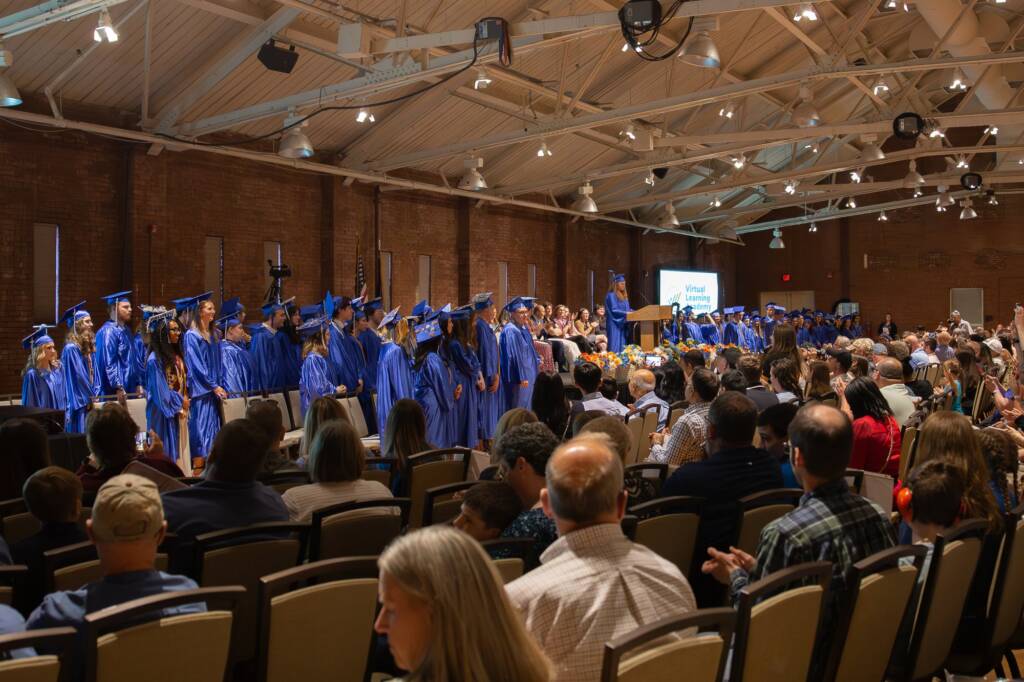Editors Note: A common misconception about virtual school education is that students are left with no opportunity to socialize and are instead left to work on their own in front of a computer. While a bulk of virtual schoolwork does involve a student working in a solitary learning environment, there are in fact many opportunities for online learners to socialize with their fellow students. The following is the second in a 4-part series detailing the various social opportunities students will experience in a virtual school setting. Today’s topic: Community Service!
Giving back to your community is an essential component to learning- not only about oneself but also about how things function in the real world. Volunteerism is fundamental to earning a 21st-century education-both in traditional and virtual school settings-and is often the source of social interactions not experienced in the classroom setting.
At Virtual Learning Academy Charter School: volunteering isn’t just encouraged, it’s required. All full-time students at VLACS must complete a minimum of 10 hours of community service for each year of enrollment. Volunteer opportunities, which are required to earn a diploma, are completed through VLACS’ advisory program, which is also where a student is able to find job shadow opportunities, as well as explore career and college options, start goal setting, etc.
Kyle Cote, Director of Guidance Services at VLACS, says volunteering is an important part of every VLACS student’s experience.
“For some, it teaches about the needs of their community, state or country and helps them feel connected and as though they are capable of making a difference,” she said. “Some students select an experience because it relates to their interests and, by serving in that capacity, their interests either change or strengthen, which helps them clarify their future path.”
Cote says the volunteering experiences students have selected have varied over the years. One of the most notable involved a student who volunteered at the Springfield Public Library. This student was tasked with sorting through donated books, researching their prices, and then selling them on Amazon if they were deemed worthy. The proceeds from the book sales went into a scholarship fund for high school seniors in the community.
Other past VLACS volunteer projects have included:
· Teaching religious education to kindergartners
· Helping disabled neighbors with household chores
· Volunteering within 4-H
· Helping wheelchair-bound students discover their abilities
· Raising money through bake sales for the Make-a-Wish Foundation
· Raising money for Childrens’ Research Hospital through video gaming
· Volunteering with adaptive ski programs
· Performing dance routines
· Organizing concerts and theatre productions for sick children and nursing home residents
· Tutoring struggling students
· Doing chores for churches
· Performing church missionary work
· Volunteering at soup kitchens and homeless shelters
· Traveling to do mission work
· Spending a vacation week volunteering at an orphanage in Haiti
· Volunteering at an animal shelter
· Spending time with the elderly
· Reading to children at their local libraries
· Coaching younger kids on sports teams and at sports camps
· Helping in the art room at the local elementary school
· Donating to Toys for Tots
Some students select a volunteer experience primarily to fulfill the requirement and because the specific experience is most accessible and/or convenient. Cote said while these students may initially consider their selection random and perhaps even relatively meaningless, they often develop a passion for helping others and/or discovering a career path.
“This opportunity also gives students the chance to step outside of themselves and focus on others,” she said. “It can challenge perceptions that they have grown up with and help them to learn important life lessons that bring about new maturity and wisdom.”
Opportunities for volunteering can also be found within individual courses included in the VLACS course catalog. For example, the VLACS’ American Government course includes a requirement that the student “experience the responsibilities of citizens by conducting a service project in a community.” Other American Government courses give virtual school students the option to conduct collaborative projects with other students. The VLACS Economics course also includes a community action project, which allows students to review community needs and create an implementation plan of action that would improve their community.
Students in Middle School level courses are also encouraged to give back. The Middle School Civics course has a community service component in which virtual school students plan a Service Learning Project in segment 1d and carry it out in segment 2.
In addition to giving back, Cote believes volunteering also provides opportunities for students to feel “a part of,” rather than “apart from” the community at large. Volunteering, according to Cote, easily dovetails with VLACS’ goal of its mission to graduate students who are “college, career, and citizenship” ready.
“There are many things about which students need ‘an education outside of the traditional classroom,” she said. “Opportunities that take learning ‘off the page’ and ‘outside the walls,’ such as volunteering, provide alternative ‘world classrooms’ that students can not experience within a physical school building.”
Interested in whether you have what it takes to be a successful student in VLACS full-time program? To learn more about the many benefits of getting a virtual school education, contact one of our admissions representatives today! And don’t forget to stay tuned for the next installment in this 4-part series on socialization in online and virtual school settings.
Facebook
Twitter
Linkedin
Email
A Second Chance At High School
“Nobody in my family has graduated… Nobody.” Completing high school is more than just earning a diploma for VLACS adult education student Spencer Foster. Finishing high …
Read More →
Back to Our Blog
Contact Us
Have a question about the curriculum, tuition, or how [VLACS] can give you more freedom to pursue an education? Reach out to us, we can help.




